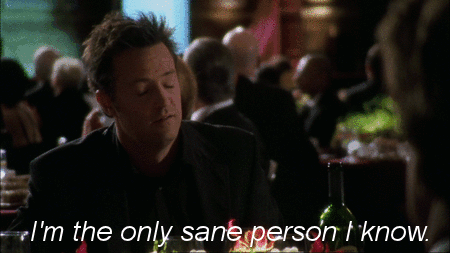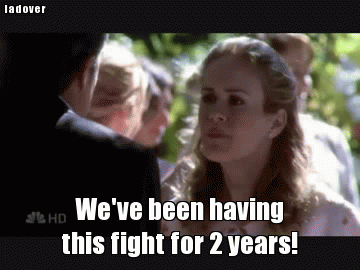Happy Thursday!
. . . and I hope you appreciate that not only is the newsletter arriving a day early, but I’m sparing you my further thoughts on “cancel culture”. (Well done to everyone on the entire internet for popularising a nebulous scissor of a phrase, which has no obvious meaning and therefore allows everyone to argue with a straw man version of the other side’s view. Really top-notch work.)
The subject has been pinging round Twitter all week - because of an open letter to Harper’s magazine, and now the resignation of Bari Weiss from the NYT - but I keep wondering if it is actually fascinating, or just fascinating to me. Regular readers will know that I fought hard at my previous workplace to keep a space open for unpopular opinions, and faced a lot of backlash for it, including other journalists trying to spread lies about me and my professional conduct. (Luv 2 keep a secret blacklist.) So I’m probably the worst person to have an objective opinion on the phenomenon.
If the subject interests you, though, here’s Bari Weiss’s resignation letter.
And here is Ross Douthat on what “cancel culture” actually is: “The point of cancellation is ultimately to establish norms for the majority, not to bring the stars back down to earth.”
And here is my revised and expanded version of “woke capitalism”, seen first right here on the Bluestocking, and now on the Atlantic.
One final one: here is the best counter-argument to the Harper’s letter: “Free speech defenders [miscast] their argument as a high level defense of the principles that undergird a free society rather than what they’re actually doing: debating the parameters of socially-acceptable speech regarding race and gender.”
Helen

Boris Johnson’s Woman Problem (Times)
Of the 92 Downing Street press briefings held between March and June, only three were led by women. There are six female ministers in a cabinet of 22, yet the home secretary, Priti Patel, is the only one allowed out for an occasional appearance. Anne-Marie Trevelyan is about to lose her job running the Department for International Development to Dominic Raab at the Foreign Office. Liz Truss is seeing her Department for International Trade downgraded. The work and pensions secretary, Thérèse Coffey, who oversees a vital department, is ignored. The head of the No 10 policy unit, Munira Mirza, is the only woman in the prime minister’s inner circle of advisers.
I suspect that Downing Street thinks that anyone complaining about this is some kind of metrolib dandy Lady Fancycakes, but the lack of women’s voices at the top of the government is actually leading them into bad policymaking, which people will notice. Dominic Cummings needs to disrupt his OODA loop, pronto.
The Perils of With Us Or Against Us (Atlantic)
A group of policing-reform advocates identified eight use-of-force policies that are statistically associated with fewer police killings. Then they successfully lobbied dozens of cities to adopt their “8 Can’t Wait” measures, such as banning chokeholds, mandating de-escalation, and requiring cops to intervene to stop excessive force. In a sign of the times, their website now leads with a mea culpa. “Even with the best of intentions, the #8CANTWAIT campaign unintentionally detracted from efforts of fellow organizers invested in paradigmatic shifts that are newly possible,” they wrote. “For this we apologize wholeheartedly, and without reservation.”
Because even insufficient radicalism from allies draws ire, many may feel tempted to keep quiet and observe. But “silence is violence,” some insist. That phrase is chanted on the streets, and its logic is being applied to individuals and institutions. In TheNew York Times, the author Chad Sanders urged shunning of the silent, advising his white friends to text their relatives and loved ones “telling them you will not be visiting them or answering phone calls until they take significant action in supporting black lives either through protest or financial contributions.” Those are cult tactics.
This piece, by my Atlantic colleague Conor Friedersdorf, resonated with me, possibly because I’m just a few years younger than him, and so my formative political experiences also happened in the post-9/11 years. I hadn’t realised how deeply the feeling of being told I was on the “wrong side of history” - by opposing the Iraq war - had shaped my instinctive reaction against that phrase, and that idea. I don’t know how to explain the peculiar climate of the time to those too young to remember: the assertion that asking questions was “unpatriotic”, for example. The final episodes of Studio 60 On The Sunset Strip capture the soft censorship of a period now defined by “freedom fries” and “weapons of mass destruction” and a Sun front page of Charles Kennedy as a “spineless reptile”.
(Side note: it’s an irony of life that many of the pro-Iraq War voices from 2003/4 have ended up being more aligned with my views in the present discussion than the anti-war left.)

From my inbox: A TV industry mole gets in touch to say that Quibi (Bluestocking 145) has acquired a reputation as a “slate scraper”, picking up shows other networks have passed on. However, there is one acquisition which is an incredible piece of television, but you can see why it didn’t get commissioned elsewhere - Murder House Flip - “DIY experts try to do up and sell houses where brutal murders happened”.
Does Anti-racism Training Work? (New York Times)
Last July, in San Francisco, I attended three of DiAngelo’s sessions. “I wasn’t raised to see my race as saying anything relevant about me,” she declared to a largely white crowd in the Mission district’s 360-seat Brava Theater. Her audience had paid between $65 and $160 per ticket to hear her speak for three and a half hours. The place was sold out. “I will not coddle your comfort,” she went on. She gestured crisply with her hands. “I’m going to name and admit to things white people rarely name and admit.” Scattered Black listeners called out encouragement. Then she specified the predominant demographic in the packed house: white progressives. “I know you. Oh, white progressives are my specialty. Because I am a white progressive.” She paced tightly on the stage. “And I have a racist worldview.”
Here’s that 9,000 words on Robin DiAngelo you asked for. I’m interested in her persona, because it’s so built around being a white woman - self-abasing, apologising pre-emptively for being alive, taking up space. I don’t think a male Robin DiAngelo would happen. Also, she grew up in rough circumstances: single mum who died of cancer, then she lived with her dad who kept a room plastered in Playboy centerfolds. As Thomas Chatterton Williams noted, it’s intriguing that she has made a career out of race, not class. “From my perspective, I would never trade my middle-class intact family privilege for her white privilege,” he writes.
And there’s obviously huge self-help/evangelical overtones to what she’s doing. I don’t know, maybe I’m jaded because I’ve spent the week reading about highly armed white nationalist militias, but I think “white fragility” is perhaps less of a problem than white aggression. Unfortunately you can’t get the Boogaloo movement to shell out $160 a ticket to hear that they’re bad people.
(Here is my favourite sentence, about Levi’s, who hired DiAngelo do a workshop: “When I checked in with the high-level manager, he described the chief executive as caring earnestly about racial issues but also noted that this spring, during the pandemic, the company furloughed thousands of its low-level — and most diverse — workers, while the company chose to pay out dividends to shareholders, including to the chief executive, a reward of hundreds of thousands of dollars that he chose not to forgo.” Woke capitalism strikes again!)
Poland’s Rulers Made Up a ‘Rainbow Plague’ (Atlantic)
Both [Poland’s new president] Duda and state television played some other ugly games in the final weeks of the campaign, delivering a shout-out to anti-vaccination fanatics and accusing [opposition leader] Trzaskowski of serving German and “Jewish” interests (one chyron on state TV read: “Will Trzaskowski Fulfill Jewish Demands?”). My husband, who is Polish and a member of the European Parliament for Trzaskowski’s party, campaigned on the Warsaw mayor’s behalf. Several times, voters told him they wouldn’t take his leaflets, because if he opposed the government then he must be German. “But I don’t even speak German,” he responded, in Polish. It didn’t seem to matter. At the end of the campaign, the Law and Justice leader, Jarosław Kaczyński, declared that Trzaskowski did not have a “Polish heart” or a “Polish soul.”
I’m including this because it is an extremely sobering piece - the Law and Justice party now controls both parliament and the presidency in Poland, and will surely use that power to erode further the independence of the media and judiciary - and its author is my colleague Anne Applebaum. (Yeah, it’s an Atlantic fest this week, bite me.) She is one of the signatories of “The Letter”.
I suspect regular readers will suspect where my sympathies lie in that particular debate, but anyway . . . it is incorrect to argue, as some rebuttals to The Letter have done, that this is purely about hifalutin’ cultural elites who don’t like criticism from Ye Honest Yeomen of Twitter. Tell that to Salman Rushdie - or indeed Anne, who is the Jewish wife of an opposition politician in a country ruled by anti-semitic, conspiracist authoritarians.

(The Matt-Harriet relationship in Studio 60 is an unwitting metaphor for every journalist’s relationship with Twitter.)
Quick links
“In a less stupid world, if you work for a newspaper your contract would explicitly have prohibited you from having a public Twitter account.” Interesting conversation on the subject of “how anti-woke should you be”. I also enjoyed this line: “I think I may have allowed my anger at dumb wokeness to make me want to become their opposite—and that I started to feel that that could be unhealthy for the kind of writer I want to be. I don’t want to be defined by what I’m not.”
“The ads, according to one critic, are ‘personally abusive, overwrought, pointlessly salacious, and trip-wired with non sequiturs’.” Anne Applebaum on the Never Trumpers running the Lincoln Project (FT).
“They are the little Gaulish village holding out against Rome”. Ben Smith in the NYT on the independent media sites under threat from autocrats in the Philippines, Malaysia and elsewhere.
“The body of his son was barely cold when the grieving father was threatened by men from the funeral company. Inside the mortuary of an austere hospital in Lamezia Terme, a city in southern Italy, the dead were not left in peace. Each corpse was now a highly prized commodity, worth thousands of euros to Europe’s most ruthless organised criminals.” The Financial Times on how the mafia has infiltrated the Italian healthcare system.
“Students continue to report increased anxiety year on year: last year only one in six students recorded their level of anxiety as “low”. The most worried students are white. And, of all students with mental disabilities, more than 70 per cent are female.” (The Critic)
“The lesson for journalists (or anyone) working amidst intractable conflict: complicate the narrative. First, complexity leads to a fuller, more accurate story. Secondly, it boosts the odds that your work will matter — particularly if it is about a polarizing issue. When people encounter complexity, they become more curious and less closed off to new information. They listen, in other words.” How journalists can change minds in a polarised world. (Medium)
Harry Potter and the Reverse Voltaire. (Medium)
“Most of our platitudes notwithstanding, self-deception remains the most difficult deception. The charms that work on others count for nothing in that devastatingly well-lit back alley where one keeps assignations with oneself.” Joan Didion on self-respect (Vogue, 1961).
There’s a Betty Friedan-Phyllis Schlafly debate online!
“The less abstract and idealized that platforms are, the less complicated their decisions seem. (This is true for any industry. See: the media!) If we understand early commitments to openness and loose moderation as stances rooted in a desire for growth and minimal labor expenditure, then the recent wave of bans is quite easy to grasp.” This John Herrman observation in the NYT is the twin of my “woke capitalism” thesis, ie look at Facebook’s decisions purely through an economic lens, and suddenly you understand their rationale perfectly.
“At times, it was hard to understand what he meant. He seemed to suggest that his presumptive Democratic challenger, former Vice President Joseph R. Biden Jr., would get rid of windows if elected and later said that Mr. Biden would “abolish the suburbs.” He complained that Mr. Biden had “gone so far right.” (He meant left.)” This is like something from Austin Powers. (NYT)
“"We will go from the period where it's a choice to open borders, or not, to frank competition for migrants, as there won't be enough," argues Prof Murray.” The looming baby drought (BBC).

Sorry this week’s edition was so long. Admittedly, not as long as my book.


